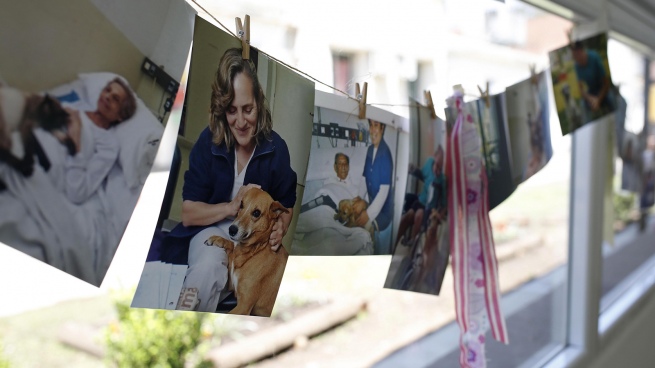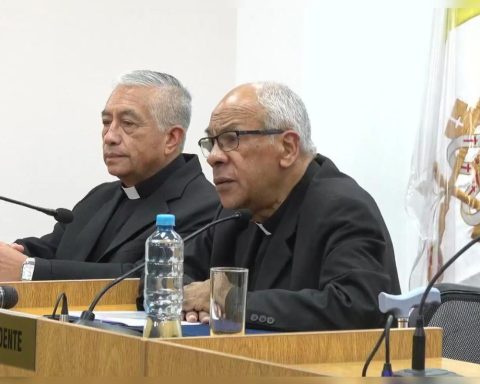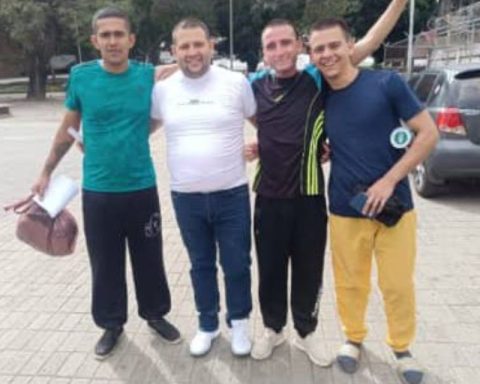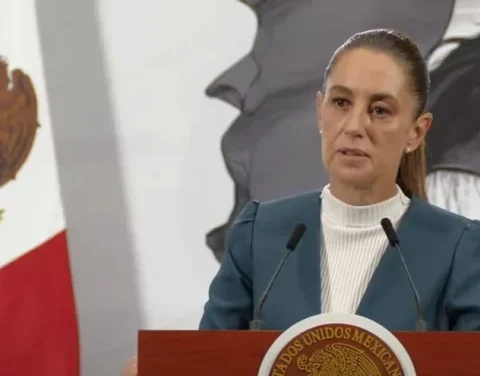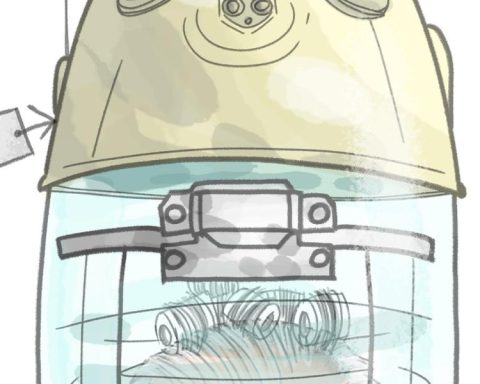The National Palliative Care Law that ensures comprehensive benefits to patients with degenerative pathologies and support for their families, sanctioned this morning by the Chamber of Deputies, “will guarantee that more people go through the most painful diseases in the best possible way” specialists assured.
“When we get sick we are still ourselves, but our abilities change and we suffer. Many of these sufferings can and should be relieved,” doctor Liliana Rodríguez, director of the Argentine Association of Medicine and Palliative Care (Aamycp), told Télam.
For this reason, the brand new law that obtained 218 affirmative votes and one negative in Deputies“is going to guarantee to transit the most painful diseases in the best possible way” by alleviating “as much as possible the suffering, both psychological and physical, social and spiritual”, through a federal regulatory framework for palliative care.
The new law develops a strategy of interdisciplinary person-centered carewhich attends to the physical, mental, social and spiritual needs of patients suffering from life-threatening and/or life-limiting illnesses.
“This law has three fundamental axes, one is clearly benefits, since the specialty is multidisciplinary and involves doctors, social workers, psychologists, therapists, kinesiologists and all the disciplines of the health team,” Rodríguez explained.
This is how he sees the access to therapiesboth pharmacological and non-pharmacological available, based on scientific evidence for palliative care.
In this regard, the specialist maintained that although “our country has a great availability of medicines”, not the entire population “has access to them”, a reason that would not have to do “with having more or less money, but rather that we all have to have access to relief from the suffering of symptoms.
“When we get sick we are still ourselves, but our abilities change and we suffer. Much of this suffering can and should be relieved”Liliana Rodríguez, director of Aamycp
Another fundamental point of the law is the promotion of undergraduate and postgraduate professional trainingcontinuing education and research in palliative care, so that “at any point in the country where suffering people are, they can be cared for and do not have to travel to large cities for symptom relief,” Rodríguez added.
Meanwhile, Silvina Dulitzky, a psychologist member of Aamycp, highlighted in dialogue with Télam the importance of the law that implies a “Guarantee of rights in the accessibility to a specific assistance and quality of palliative care”while allowing “improved accessibility to medications and benefits”, which have these care.
Likewise, the law guarantees the constitution of interdisciplinary teams of professionals and support for the teams that are already formed, which includes “improvements in the organization chart within hospitals and access to the different disciplines to be able to carry out this activity more adequately,” Dulitzky valued.
For the professional, if the current situation of “fragmentation” of palliative care in the health system is considered, the regulations allow an improvement in “quality care and management for that patient, without the need to change teams” .
As for the social aspects, those who suffer from terminal illnesses “stop being a social exclusion to become part of the social fabric, and a society that has palliative care is a much more democratic, fair and equitable society,” he added.
For her part, Mariana Jacobs, a psychologist and volunteer at the Hospice Kamalaya palliative care residence, told Télam that the new law is “an immense joy” that “will change history for the generations to come.”
“The rule emphasizes respect for the will of the patient, to be recognized, seen and valued as a subject of rights. And the patient-family unit, which is the patient’s support, is also valued”Mariana Jacobs, psychologist
“It improves the lives of patients in the sense that they are given the opportunity to claim respect for their rights, to access quality care and to have suitable professionals who accompany them efficiently and compassionately to the multiplicity of needs that occur at this time of life,” he explained.
From the mental point of view, “The law contemplates the permanent psychological accompaniment of the patient and the family, which is key”Jacobs argued.
“The rule emphasizes respect for the will of the patient, to be recognized, seen and valued as a subject of rights. And the patient-family unit is also valued, which is the patient’s support and must be considered with the importance that deserves,” by including support for loved ones of hurting people, Jacobs explained.
In short, the law enables “more teams, more education, training and more institutions working in a network, which generates better care for patients and their families,” he added.

In parallel, Deputies also sanctioned the Law on Prevention and Control of Antimicrobial Resistance early this Wednesdaywhich regulates the sale of antibiotics by establishing that “all medicinal specialties whose active pharmaceutical ingredient (API) has systemic antimicrobial activity must be ‘sale under filed prescription'”.
The project, which was promoted by the president of the Commission for Social Action and Public Health, Mónica Fein (Socialist Party), and the FdT legislator Daniel Gollan, creates the National Plan of Action for the Prevention and Control of Antimicrobial Resistance and Infections Associated with Health Care.
